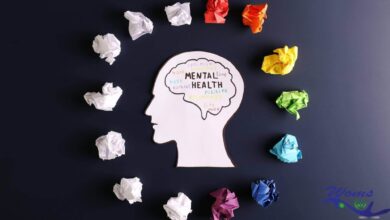What Causes of Stomach Bloating & How to Prevent it?

Bloating, a condition where your stomach feels tight and pressure is felt due to fullness is not just limited to a heavy meal after Christmas. At times, even accompanied by a stomach bulge or stomach bloating, it can feel mildly uncomfortable or may give you intense pain.
Most of the time, the discomfort may go away within a few hours, but some people experience a constant feeling of bloating which leads to many digestive issues and hormonal imbalance.
What is bloating and how does it occur?
Bloating is simply an accumulation of excess intestinal gas. Bloating caused due to excessive eating or eating too fast can be due to digestive issues. Stomach bloating could also be due to food intolerance or illnesses that are caused by gas.
Stomach bloating is also a menstrual symptom. It occurs usually as a Premenstrual symptom, also commonly known as PMS, and also when women are on their period due to changes in hormones estrogen and progesterone levels.
While gas is a natural byproduct of digestion, too much intestinal gas is an indication that something is not quite right with your digestion. While gasses are ingested by swallowing air or drinking carbonated beverages, they mostly escape through belching before reaching your intestines.
The majority of gasses in your intestines are produced by gut bacteria digesting carbohydrates, a process known as fermentation. If this fermentation goes awry, it leads to bloating.
If you suffer from constipation, a disorder, where all the digestive content – be it solid or liquid, ends up building up in the stomach instead of passing via stool, everything expands in your digestive system which ends up causing bloating.
Various autoimmune illnesses like Crohn’s disease and diverticulitis can harm the walls of your small and big intestines, which can obstruct the passing of the stool, leading to bloating.
People battling lactose intolerance, and celiac disease are also sufferers of constant bloating if a certain food is not avoided.
Some habits that also cause bloating are:
- Eating excessive processed food
- Chewing gum
- Drinking soda or carbonated drinks in unhealthy amounts
- Drinking soda with a straw (you inhale more air than required)
Since we understand what causes bloating, the next question that pops into our head is, can we prevent stomach bloating? Absolutely yes. Some of the ways to prevent or limit bloating are:
Eating foods that contain high fiber: Fruits and vegetables like beans, apples, dry fruits, avocado, berries, and broccoli are highly rich in fiber. Fiber-rich food can help in digestion which will further prevent bloating due to an unhealthy diet.
However, it is important to keep in mind to not introduce a lot of fiber into your diet immediately, as that might have the reverse side effect and cause more bloating and constipation. Slowly introduce fiber-rich food to benefit from it.
Avoid food that you cannot tolerate: If you have lactose intolerance (where you cannot digest dairy products) or celiac disease (where you cannot eat food made out of wheat), it is best to avoid them to prevent bloating – caused by them completely.
If you are not sure, whether you have any food allergies or intolerances, get a regular test or check-up done by a dietician or a physician and get a diagnosis.
Get active: Physical activities like running, jogging, and yoga can help your overall health. Exercise generally helps the body to move efficiently and also ensures food is digested in a healthy way. Dehydration, which is a major cause of constipation, can also be avoided due to exercise, as one drinks plenty of water before, during, and after the exercise.
Add probiotics: When you consume probiotics, it helps in breaking down food efficiently and ensures to the elimination of unwanted gasses that accumulate in the body. Probiotic-rich foods like kimchi, kefir, and yogurt are helpful when it comes to indigestion-related issues.
Swap unhealthy food with healthy food: Drink more water instead of soda, reduce the habit of chewing gum, drink juices without straws, and reduce consumption of fatty, processed foods; include supplements in your diet if you have any nutrients deficiency to eliminate any cause of bloating.
Keep looking out for any other discomfort that you may be experiencing along with bloating. If symptoms of bloating do not reduce despite taking all these measures, seek medical help to get further checked.




